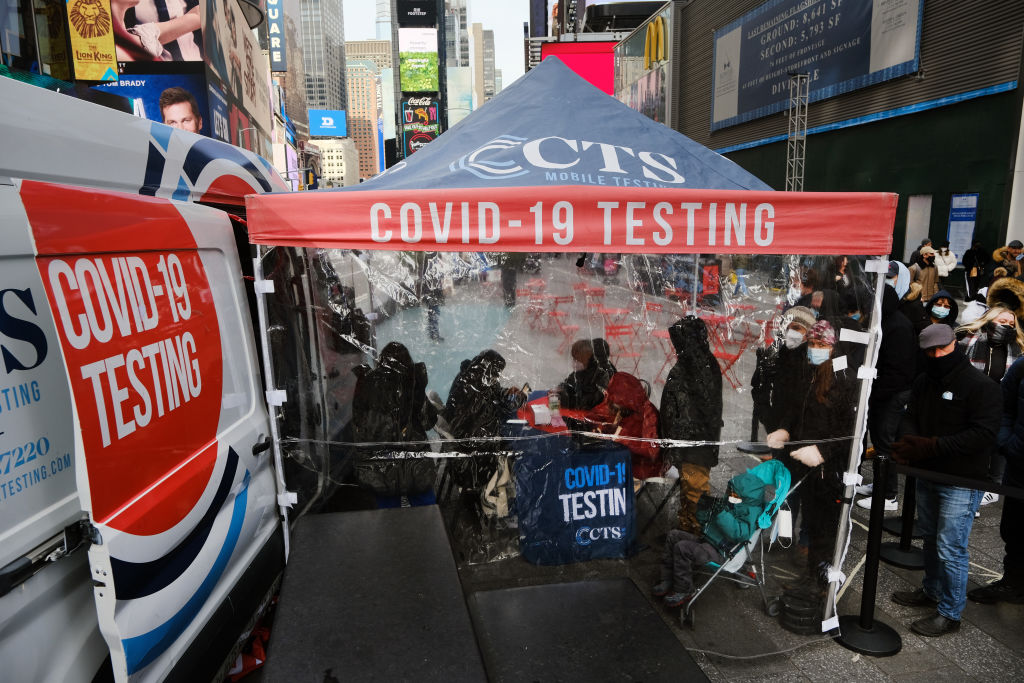-
February 2024
-
December 2023
-
November 2023
-
October 2023
- The Biden Impeachment Inquiry – Lesson
- The Biden Impeachment Inquiry – Quiz
- Israel vs Hamas: One Week in and Still at War – Lesson
- Israel vs Hamas: One Week in and Still at War – Quiz
- 2023 Nobel Prizes Announced – Lesson
- 2023 Nobel Prizes Announced – Quiz
- Trump Ordered Not to Mention Case Against Him – But Will It Last? – Lesson
- Trump Ordered Not to Mention Case Against Him – But Will It Last? – Quiz
-
September 2023
-
August 2023
-
July 2023
-
May 2023
-
February 2023
-
December 2022
-
November 2021
-
September 2022
-
August 2022
- The US Visits Taiwan Again – What Impact Will It Make? – Lesson
- The US Visits Taiwan Again – What Impact Will It Make? – Quiz
- Cold Showers and Hot Days: Europe Limits People’s Energy Use – Lesson
- Cold Showers and Hot Days: Europe Limits People’s Energy Use – Quiz
- Hidden Art Is Being Discovered Around the World – Lesson
- Hidden Art Is Being Discovered Around the World – Quiz
-
July 2022
- Last WWII Medal of Honor Recipient Will ‘Lie in State’ at US Capitol – Lesson
- Last WWII Medal of Honor Recipient Will ‘Lie in State’ at US Capitol – Quiz
- Canada and Denmark Make a Deal over Disputed Arctic Island – Lesson
- Canada and Denmark Make a Deal over Disputed Arctic Island – Quiz
- Texas Schools Spark Debate: What Should Kids Wear in Class? – Lesson
- Texas Schools Spark Debate: What Should Kids Wear in Class? – Quiz
-
June 2022
- New York Court Says: An Elephant is Not a Human – Lesson
- New York Court Says: An Elephant is Not a Human – Quiz
- Finance Classes at School – A New Trend? – Lesson
- Finance Classes at School – A New Trend? – Quiz
- NASA Will Study UFOs for the First Time – Lesson
- NASA Will Study UFOs for the First Time – Quiz
- New York City Removes Last Payphone – Or Does It? – Lesson
- New York City Removes Last Payphone – Or Does It? – Quiz
- US Hosts ‘Summit of the Americas’ – Lesson
- US Hosts ‘Summit of the Americas’ – Quiz
- The National Spelling Bee – A Time-Honored Tradition – Lesson
- The National Spelling Bee – A Time-Honored Tradition – Quiz
- Queen Elizabeth Marks 70 Years on Throne with Platinum Jubilee – Lesson
- Queen Elizabeth Marks 70 Years on Throne with Platinum Jubilee – Quiz
- Lifeguard Shortage Could Limit Summer Swimming – Lesson
- Lifeguard Shortage Could Limit Summer Swimming – Quiz
-
May 2022
- American Artist Warhol’s Painting Sells for Record Price – Lesson
- American Artist Warhol’s Painting Sells for Record Price – Quiz
- Western US Suffering From Harsh Drought – Lesson
- Western US Suffering From Harsh Drought – Quiz
- Time to Say Goodbye to Incandescent Lightbulbs? – Lesson
- Time to Say Goodbye to Incandescent Lightbulbs? – Quiz
- Tibetan Leader Visits Washington to Gain Support for His Culture – Lesson
- Tibetan Leader Visits Washington to Gain Support for His Culture – Quiz
-
April 2022
- Masks on Public Transport – Needed or Not? – Lesson
- Masks on Public Transport – Needed or Not? – Quiz
- Shanghai Under Strict Lockdown in ‘Zero-COVID’ China – Lesson
- Shanghai Under Strict Lockdown in ‘Zero-COVID’ China – Quiz
- Are Roundabouts a Good or Bad Addition to US Cities? – Lesson
- Are Roundabouts a Good or Bad Addition to US Cities? – Quiz
- Is it Chicken Kiev or Kyiv? A Scrumptious Spelling Problem – Lesson
- Is it Chicken Kiev or Kyiv? A Scrumptious Spelling Problem – Quiz
- Ketanji Brown Jackson Confirmed as Next Judge to Join Supreme Court – Lesson
- Ketanji Brown Jackson Confirmed as Next Judge to Join Supreme Court – Quiz
- Gas Prices Rise Dramatically Across America – Lesson
- Gas Prices Rise Dramatically Across America – Quiz
- Washington, DC Celebrates 110 Years of Cherry Blossoms in the City – Lesson
- Washington, DC Celebrates 110 Years of Cherry Blossoms in the City – Quiz
- Billionaire Elon Musk Tries to Buy Twitter – Lesson
- Billionaire Elon Musk Tries to Buy Twitter – Quiz
- Meet Patron, Ukraine’s Mine-Sniffing ‘Hero’ Dog – Lesson
- Meet Patron, Ukraine’s Mine-Sniffing ‘Hero’ Dog – Quiz
- Top American Officials Visit Ukraine in Secret – Lesson
- Top American Officials Visit Ukraine in Secret – Quiz
-
March 2022
- Supply Chain Crisis: Are Pop-Up Sites the Answer? – Lesson
- Supply Chain Crisis: Are Pop-Up Sites the Answer? – Quiz
- Fare Evaders Beware: New York Mayor to Tackle Subway Crime? – Lesson
- Fare Evaders Beware: New York Mayor to Tackle Subway Crime? – Quiz
- Time’s Up For Switching Clocks? Congress Considers Daylight Saving – Lesson
- Time’s Up For Switching Clocks? Congress Considers Daylight Saving – Quiz
- Ukraine’s President Addresses Congress as War Persists – Lesson
- Ukraine’s President Addresses Congress as War Persists – Quiz
- No More Meat? New York Mayor Decrees Vegan Fridays for Schools – Lesson
- No More Meat? New York Mayor Decrees Vegan Fridays for Schools – Quiz
- Big Business Shuns Russia Over Ukraine Invasion – Lesson
- Big Business Shuns Russia Over Ukraine Invasion – Quiz
- ‘People’s Convoy’ Loops Around US Capital in COVID Protest – Lesson
- ‘People’s Convoy’ Loops Around US Capital in COVID Protest – Quiz
- From Train Robberies to Stores – US Sees a Rise in Crime – Lesson
- From Train Robberies to Stores – US Sees a Rise in Crime – Quiz
- President Biden Gives His First State of the Union Speech – Lesson
- President Biden Gives His First State of the Union Speech – Quiz
-
February 2022
- Ukraine War Continues as Peace Talks Begin – Lesson
- Ukraine War Continues as Peace Talks Begin – Quiz
- US States Say Farewell to COVID Rules – Lesson
- US States Say Farewell to COVID Rules – Quiz
- Russia Launches Invasion of Ukraine – Lesson
- Russia Launches Invasion of Ukraine – Quiz
- Feuds Erupt as States Redraw Voting Maps – Lesson
- Feuds Erupt as States Redraw Voting Maps – Quiz
- Monobob Makes Olympic Debut – Lesson
- Monobob Makes Olympic Debut – Quiz
- Canadian Truckers Stage Major Protest Against COVID Laws – Lesson
- Canadian Truckers Stage Major Protest Against COVID Laws – Quiz
- U.S. Sends Troops to Europe as Ukraine-Russia Tensions Rise – Lesson
- U.S. Sends Troops to Europe as Ukraine-Russia Tensions Rise – Quiz
- Winter Olympics Begin in Beijing Amid Calls for Boycott – Lesson
- Winter Olympics Begin in Beijing Amid Calls for Boycott – Quiz
- Afghanistan Faces a ‘Tsunami of Hunger’ Under the Taliban – Lesson
- Afghanistan Faces a ‘Tsunami of Hunger’ Under the Taliban – Quiz
- Dealing With Omicron: COVID Rules Around the World – Lesson
- Dealing With Omicron: COVID Rules Around the World – Quiz
-
January 2022
- Teen Pilot Becomes Youngest Girl to Fly Solo Around the World – Lesson
- Teen Pilot Becomes Youngest Girl to Fly Solo Around the World – Quiz
- No More Meat and Potatoes? Supply Down and Prices Up – Lesson
- No More Meat and Potatoes? Supply Down and Prices Up – Quiz
- Flight Confusion as 5G Causes Safety Worries – Lesson
- Flight Confusion as 5G Causes Safety Worries – Quiz
- English Translations on French ID Cards? Some say ‘Non!’ – Lesson
- English Translations on French ID Cards? Some say ‘Non!’ – Quiz
- Omicron: Did COVID Catch the Common Cold? – Lesson
- Omicron: Did COVID Catch the Common Cold? – Quiz
- Five Countries Agree: Nuclear War Must Be Avoided – Lesson
- Five Countries Agree: Nuclear War Must Be Avoided – Quiz
- Enes Kanter’s American Dream Come True – Lesson
- Enes Kanter’s American Dream Come True – Quiz
- U.S. Bans Products Linked to Uighur Slavery – Lesson
- U.S. Bans Products Linked to Uighur Slavery – Quiz
- Time Capsules Found in Base of Robert E. Lee Statue – Lesson
- Time Capsules Found in Base of Robert E. Lee Statue – Quiz
-
December 2021
- Russia and US Lock Horns Over Ukraine Border – Lesson
- Russia and US Lock Horns Over Ukraine Border – Quiz
- US Military Starts New UFO Research Group – Lesson
- US Military Starts New UFO Research Group – Quiz
- Omicron COVID Strain Comes Out of South Africa – Lesson
- Omicron COVID Strain Comes Out of South Africa – Quiz
-
November 2021
- La Niña Weather Patterns May Affect the US This Winter – Lesson
- La Niña Weather Patterns May Affect the US This Winter – Quiz
- Dads on Duty Help Out at Louisiana High School – Lesson
- Dads on Duty Help Out at Louisiana High School – Quiz
- The Price of Thanksgiving Goes Up in 2021 – Lesson
- The Price of Thanksgiving Goes Up in 2021 – Quiz
- Airlines Struggle with Flights Ahead of the Holidays – Lesson
- Airlines Struggle with Flights Ahead of the Holidays – Quiz
-
October 2021
- Crisis and Kidnappings in Haiti – Lesson
- Crisis and Kidnappings in Haiti – Quiz
- US Feels Effects of Computer Chip Shortage – Lesson
- US Feels Effects of Computer Chip Shortage – Quiz
- California Oil Spill Investigations – Lesson
- California Oil Spill Investigations – Quiz
- Michigan Governor Vows to Fix Lead-Infected Water Supply – Lesson
- Michigan Governor Vows to Fix Lead-Infected Water Supply – Quiz
- Nobel Prize Winners Announced – Lesson
- Nobel Prize Winners Announced – Quiz
- COVID and School – Rules Vary Across the Nation – Lesson
- COVID and School – Rules Vary Across the Nation – Quiz
- Toilet Paper Shortage 2.0? – Lesson
- Toilet Paper Shortage 2.0? – Quiz
- A Very Merry COVID Homecoming? – Lesson
- A Very Merry COVID Homecoming? – Quiz
- Merck COVID Pill – A New Way to Treat the Virus? – Lesson
- Merck COVID Pill – A New Way to Treat the Virus? – Quiz
- Eruptions at La Palma and Kilauea Volcanoes – Lesson
- Eruptions at La Palma and Kilauea Volcanoes – Quiz
-
September 2021
- US Joins UK and Australia in ‘AUKUS’ Defense Deal – Lesson
- US Joins UK and Australia in ‘AUKUS’ Defense Deal – Quiz
- Rules Change for Travelers to the US – Lesson
- Rules Change for Travelers to the US – Quiz
- Is There a Crisis at the Southern Border? – Lesson
- Is There a Crisis at the Southern Border? – Quiz
- What’s Going On With COVID-19? – Lesson
- What’s Going On With COVID-19? – Quiz
- Biden Announces 6-Step COVID Plan – Lesson
- Biden Announces 6-Step COVID Plan – Quiz
- Private Rescue Missions in Afghanistan – Lesson
- Private Rescue Missions in Afghanistan – Quiz
- China’s Crackdown on Video Games – Lesson
- China’s Crackdown on Video Games – Quiz
-
August 2021
- US Military Has Left Afghanistan – But What About Those Left Behind? – Lesson
- US Military Has Left Afghanistan – But What About Those Left Behind? – Quiz
- Hurricane Ida Tests New Orleans – Lesson
- Hurricane Ida Tests New Orleans – Quiz
- Records Set for Paralympic Games – Lesson
- Records Set for Paralympic Games – Quiz
- Storms in Tennessee and Northeast Cause Floods – Lesson
- Storms in Tennessee and Northeast Cause Floods – Quiz
Omicron: Did COVID Catch the Common Cold? – Lesson

(Photo by Universal Images Group via Getty Images)
What do we know about the latest version of the coronavirus?
At the end of 2021, a new version of COVID appeared, and it has quickly become the most common strain of the virus around the world. Called the Omicron variant, it first appeared in southern Africa, and the first known case in the United States was reported on December 1. While Omicron is the most contagious version of the virus, the good news is that it so-far appears less deadly than earlier strains.
The reported symptoms are cold-like: body aches and pains, muscle pains, headache, tiredness, sore throat, and mild cough. Unvaccinated people report similar but slightly more intense symptoms compared to those who have taken a vaccine against COVID.
COVID Caught a Cold?
As Omicron spreads like wildfire worldwide, scientists are scrambling to study and understand the new variant. A team of researchers has found surprising evidence that may explain why Omicron is milder and spreading so fast.
Viruses often mutate, creating different “strains” or “variants.” Virologists have been surprised by the large number of mutations in Omicron. One of these mutations was shown to have DNA from a surprising source.
The researchers found a mutation “ins214EPE” that they think has been added from “HCoV-229E,” a common cold virus. In plain language, Omicron caught a cold.

COVID DNA test lab (Photo by Uwe Anspach/picture alliance via Getty Images)
The finding needs to be verified, but it gives a possible reason why the Omicron strain is so contagious and with milder symptoms. It may have been hijacked by one of the many cold viruses common around the globe.
Hospitals Under Pressure?
Omicron has quickly spread across the world and countries are reporting that hospitals are seeing a lot of patients with the virus. France’s health minister Olivier Veran commented that his nation’s hospitals are under pressure but said that Omicron patients were in a less serious condition than those with an older version of COVID, the Delta strain. Other research found that almost all hospitalized people with Omicron do not need help to breathe, and even fewer need intensive care. The evidence shows that elderly people are more at risk from the virus than younger ones.
The chief of the World Health Organization, Dr. Tedros Adhanom Ghebreyesus, warned:
“While Omicron does appear to be less severe compared to Delta, especially in those vaccinated, it does not mean it should be categorised as mild … Just like previous variants, Omicron is hospitalising people and it is killing people. In fact, the tsunami of cases is so huge and quick, that it is overwhelming health systems around the world.”

(Photo by Spencer Platt/Getty Images)
On the other hand, a study in South Africa found that in the first two weeks of the Omicron wave, the hospitals saw 166 COVID patients, a sharp rise from earlier. However, three-quarters of the admissions were “incidental,” meaning the patients arrived at the hospital for another reason. They were discovered to have Omicron due to a change in hospital rules that required COVID-19 testing of all patients. The study showed that most hospital cases were asymptomatic or had only mild symptoms.
The reason for the wide spread of the disease seems to be that most people have either no or mild symptoms of illness – so they may not know they even have it. As such, the actual number of infected people could be much higher than the recorded cases. This also suggests that those suffering from the Omicron variant are less likely to need hospital care than other COVID versions.
Many scientists disagree on how severe Omicron is. Some are suggesting it could be similar to the flu, while others say the situation is graver. Omicron has only been observed for about two months, so it is still too early to draw many conclusions about it.